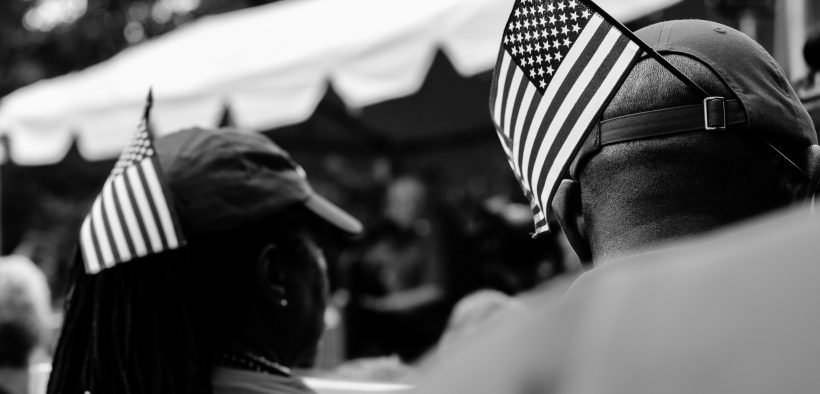Houses Passes Pro-Union Bill in Time for Election

In a 224-194 party-line vote, Democrats brought workers’ rights to the political forefront as the election season ramps up.
The US House of Representatives passed a bill aimed at bolstering the power of labor unions on Thursday. In a 224-194 party-line vote, Democrats brought workers’ rights to the political forefront as the election season ramps up. Although the law is unlikely to pass the Senate, the timing of the legislation suggests Democrats may use it as posturing in an attempt to secure more votes from working class Americans.
The legislation was originally introduced on May 2, 2019, before spending the remainder of last year in the House Committee on Education and Labor. Rep. Bobby Scott, D.-Va., chairman of the committee, introduced it to widespread support among his Democratic colleagues, including presidential contenders, despite strong resistance from big business.
What is the PRO Act?
The Protecting the Right to Organize (PRO) Act would significantly weaken the power of state governments to restrict union organizing. Notably, it would reverse right-to-work laws, which currently forbid unions from collecting mandatory dues from employees they represent, Eric Morath reported for The Wall Street Journal.
Furthermore, the bill would empower the National Labor Relations Board to impose fines on businesses that are found break labor laws, Politico reported. Currently, the organization can only recover back pay from companies.
Card checks are another focus of the bill. A card check is a method used when employers are believed to have interfered in the election of a union. It is an alternative avenue to allow workers to organize by which a majority of the employees within a bargaining unit turn in authorization cards. The procedure is not secret, unlike traditional voting for a union, thereby making it more controversial and subjecting it to Republican objections of privacy violations.
Finally, the law would bring California’s ABC test to all states. This test is a divisive issue among pro-business lobbyists and congresspeople. Essentially, it makes it harder for companies to classify workers as independent contractors by subjecting them to a three-part check that ensures a worker is not an employee. The Society for Human Resource Management lists them as:
- The employer does not control or direct the work performance.
- The work performed falls outside of normal business operations.
- The worker is part of “an indecently established trade, occupation, or business” within the same industry as the employer.
Democratic Candidates Press the Issue
Senators Elizabeth Warren, Bernie Sanders, and Amy Klobuchar, as well as Pete Buttigieg and Joe Biden have all added their voices to support for the bill, Alex Gangitano reported for The Hill.
“If we’re talking about growing wages, providing health care to all people, having a progressive tax system, the trade union movement must be in the middle of all of those discussions,” Sanders said while speaking at the International Association of Machinists in April.
Sanders’ visit to the union was only one example of Democrats paying attention to organized labor along the campaign trail. Biden held his first rally with the Teamsters in Pittsburgh and Warren went so far to announce her candidacy at a former textile mill, the location of the 1912 Bread and Roses strike, the WSJ reported.
Blue-collar workers have been in Democratic crosshairs since Hillary Clinton lost Michigan, an auto industry hotbed, to Trump in 2016. Historically, union-affiliated voters have aligned with liberals, but Trump managed to secure 39% of the segment’s votes, according to a Cooperative Congressional Election Study.
Big Business Pushes Back
Opposition against the bill has come from both Republican representatives and corporate organizations.
“If the PRO Act became law, workers would be forced to take money from their paycheck and give it to labor unions, even if they don’t want to be represented by a union,” said Rep. Virginia Foxx, R.-N.C., It would also “deprive millions of Americans of the opportunity to work independently and start their own businesses.”
Small businesses would be harmed, Jeff Brabrant, government relations manager at the National Federation to Independent Business, claimed. The restrictions on hiring independent contractors through the ABC test would reduce owners’ abilities to bring onboard more help. Smaller operations cannot always afford the taxes and benefits associated with hiring full-fledged employees.
The US Chamber of Commerce is also fighting the bill, which it assailed as “a litany of almost every failed idea from the past 30 years of labor policy.” It should come as no surprise that the Trump administration has also been critical of union efforts to push the law through the House.
Through the Office of Management and Budget, the White House argued the PRO Act would restrict freedom of association, violate privacy, kill the gig economy, and be more costly for businesses.
The PRO Act has virtually no chance of passing and at this point could be mostly symbolic as Democrats fight for control of the Senate and White House in November. Even if the Democrats held both houses of Congress and the White House, the bill would likely be an uphill battle considering the intense amount of lobbying already directed at stopping it.















